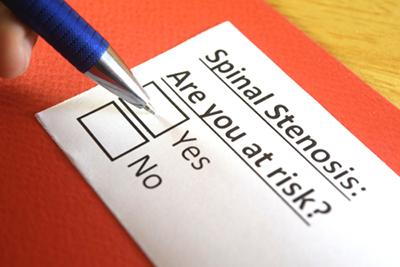Spinal Stenosis and Its Effect on Mobility and Balance

Spinal Stenosis and Its Effect on Mobility and Balance
Spinal stenosis refers to a medical condition characterized by the narrowing of spaces within the spinal column, which has the potential to create pressure on the various nerves traveling through the spine. According to Dr. Craig Callewart, an experienced spine surgeon with offices in Dallas, Rockwall, & Forney, TX, spinal stenosis can happen in different spinal regions but is most often found to occur in the lower back (i.e., lumbar spinal stenosis) and the neck (i.e., cervical spinal stenosis).
Spinal Stenosis Symptoms
Spinal stenosis symptoms will be contingent on the location and severity but typically include the following –
- Pain/Discomfort —which may occur in the lower back or neck.
- Numbness/Tingling —often experienced in related extremities.
- Balance/Coordination Issues —It is challenging to walk and maintain balance.
- Muscle Weakness —in the arms/legs.
The Effect of Spinal Stenosis on Mobility & Balance
The potential impact of spinal stenosis on balance and mobility includes the following –
Mobility Issues
- Pain and Discomfort —Chronic pain can substantially impact mobility, making it difficult to engage in everyday activities like walking, bending, lifting, etc.
- Limited/Reduced Range of Motion —The narrowing of the spine can limit movement, making it difficult to twist/turn, or stretch.
- Muscle Weakness —Compression of nerves within the spinal cord can cause limb weakness, further reducing mobility.
Balance Issues
- Compressed Nerves —If nerves become compressed in the spine, it often causes unsteadiness with one’s balance.
- A Fear of Falling —Instability and discomfort/pain often create an internal fear of falling. This may cause someone to limit their movement and miss activities and events they enjoy.
- Problems with Coordination —Damage to the spinal cord (or related nerves) can impact coordination, making it challenging to complete tasks requiring accurate movement.
Treating/Managing Spinal Stenosis
Fortunately, there are viable ways to manage the condition and its symptoms –
- Physical Therapy —Strengthening/stretching exercises help improve balance and mobility.
- Medication —Specific OTC and prescription pain relievers, anti-inflammatory drugs, and muscle relaxants can offer relief.
- Steroid Injections —Help lessen inflammation and relieve pain.
- Assistive Strategies —Walkers, canes, or other bracing options can aid mobility and stability.
Surgery can help reduce pressure on the spinal cord or nearby nerves in severe cases.
Contact a Leading Dallas Spine Surgeon Near You Today
Spinal stenosis is a medical condition that has the potential to have a significant impact on a person’s mobility and balance. Early diagnosis and treatment are vital for symptom management and have the potential to improve one’s quality of life
If you live or work in or around Dallas, Rockwall, & Forney, TX, and would like more information, contact Dr. Callewart or a staff member at (214) 271-4585 or online.

Spinal Stenosis and Its Effect on Mobility and Balance
Spinal stenosis refers to a medical condition characterized by the narrowing of spaces within the spinal column, which has the potential to create pressure on the various nerves traveling through the spine. According to Dr. Craig Callewart, an experienced spine surgeon with offices in Dallas, Rockwall, & Forney, TX, spinal stenosis can happen in different spinal regions but is most often found to occur in the lower back (i.e., lumbar spinal stenosis) and the neck (i.e., cervical spinal stenosis).
Spinal Stenosis Symptoms
Spinal stenosis symptoms will be contingent on the location and severity but typically include the following –
- Pain/Discomfort —which may occur in the lower back or neck.
- Numbness/Tingling —often experienced in related extremities.
- Balance/Coordination Issues —It is challenging to walk and maintain balance.
- Muscle Weakness —in the arms/legs.
The Effect of Spinal Stenosis on Mobility & Balance
The potential impact of spinal stenosis on balance and mobility includes the following –
Mobility Issues
- Pain and Discomfort —Chronic pain can substantially impact mobility, making it difficult to engage in everyday activities like walking, bending, lifting, etc.
- Limited/Reduced Range of Motion —The narrowing of the spine can limit movement, making it difficult to twist/turn, or stretch.
- Muscle Weakness —Compression of nerves within the spinal cord can cause limb weakness, further reducing mobility.
Balance Issues
- Compressed Nerves —If nerves become compressed in the spine, it often causes unsteadiness with one’s balance.
- A Fear of Falling —Instability and discomfort/pain often create an internal fear of falling. This may cause someone to limit their movement and miss activities and events they enjoy.
- Problems with Coordination —Damage to the spinal cord (or related nerves) can impact coordination, making it challenging to complete tasks requiring accurate movement.
Treating/Managing Spinal Stenosis
Fortunately, there are viable ways to manage the condition and its symptoms –
- Physical Therapy —Strengthening/stretching exercises help improve balance and mobility.
- Medication —Specific OTC and prescription pain relievers, anti-inflammatory drugs, and muscle relaxants can offer relief.
- Steroid Injections —Help lessen inflammation and relieve pain.
- Assistive Strategies —Walkers, canes, or other bracing options can aid mobility and stability.
Surgery can help reduce pressure on the spinal cord or nearby nerves in severe cases.
Contact a Leading Dallas Spine Surgeon Near You Today
Spinal stenosis is a medical condition that has the potential to have a significant impact on a person’s mobility and balance. Early diagnosis and treatment are vital for symptom management and have the potential to improve one’s quality of life
If you live or work in or around Dallas, Rockwall, & Forney, TX, and would like more information, contact Dr. Callewart or a staff member at (214) 271-4585 or online.
Are You In Pain?
Most patients experiencing pain can be seen by Dr. Callewart or his physician assistant within 24 hours in Dallas, Forney and Rockwall, Texas.
Our Locations
Office Hours
Monday
8:00 am - 5:00 pm
Tuesday
8:00 am - 5:00 pm
Wednesday
8:00 am - 5:00 pm
Thursday
8:00 am - 5:00 pm
Friday
8:00 am - 5:00 pm
Saturday
Closed
Sunday
Closed
